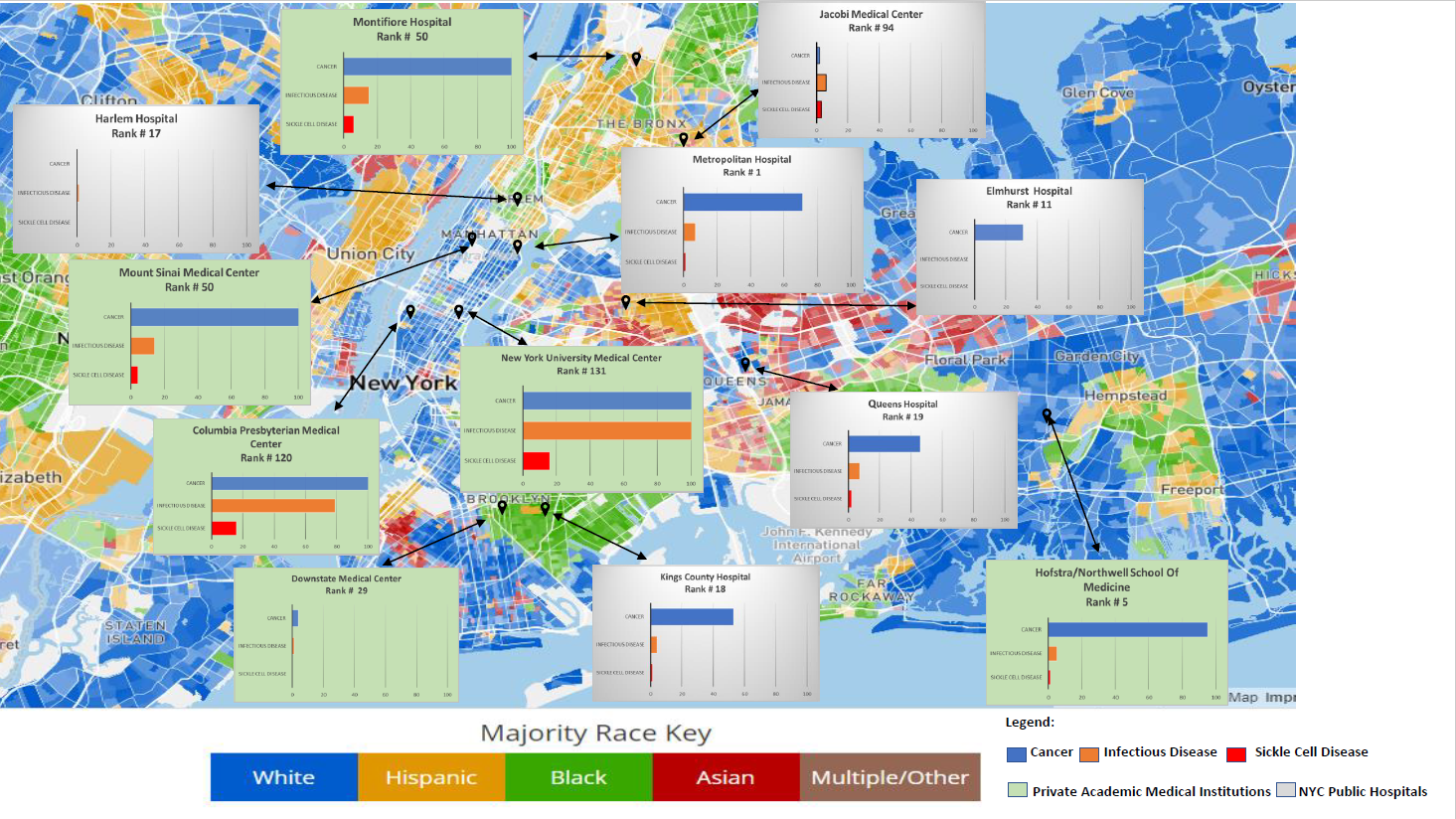Hematology/Oncology
Session: Hematology/Oncology
356 - Underrepresentation of Minorities in Clinical Trials: Insights from a "Ghost Map" of Access and Hospital Racial Inclusivity Rankings in NYC
Friday, May 3, 2024
5:15 PM - 7:15 PM ET
Poster Number: 356
Publication Number: 356.521
Publication Number: 356.521
- SB
Sivan L. Borenstein, MD (she/her/hers)
Resident
Albert Einstein College of Medicine
Bronx, New York, United States
Presenting Author(s)
Background: In the 1850s, Dr. John Snow's groundbreaking "ghost map" pinpointed the source of a cholera outbreak to a central water pump, illustrating the impact of spatial factors on health outcomes.
Today, we are faced a very different healthcare challenge: understanding and mitigating the underrepresentation of minority populations in clinical trials. This issue is critical to ensuring that trial findings are generalizable and applicable to diverse patient populations in real-world clinical settings. We propose that minority underrepresentation is not due to minorities “unwillingness to participate” in clinical trials. Contrary to the notion that minority underrepresentation stems from a lack of willingness to participate, we propose that it is due to the accessibility of trials at racially inclusive where minorities seek medical care.
Objective: To compare the availability of clinical trials and racial inclusivity rankings (based on the Lown Institute 2023 report) between academic medical centers and public hospitals within New York City.
Design/Methods: We searched clinicaltrials.gov to collect data on the number of clinical trials open for cancer, infectious disease, and sickle cell disease within NYC’s academic medical centers and public hospitals.
Results: We created a map of NYC delineating community ethnic composition, hospital locations, the number of available clinical trials at each institution, and the respective racial inclusivity rankings of these hospitals (see figure 1.) The visualization of these data highlights the existing disparities in access to clinical trials within racially inclusive hospitals and within academic medical centers.
Conclusion(s): The racially inclusivity rankings of hospitals elucidate a stark reality of healthcare segregation, despite geographic convenience and insurance types. Our findings spotlight the pronounced disparity in the distribution of clinical trials across NYC. Patients seeking care at racially inclusive hospitals have a lower opportunity to participate clinical trials. While numerous initiatives aim to increase minority participation in clinical trials through community engagement, they fail to address the fundamental issue - the scarcity of trials in racially inclusive healthcare settings. Place matters, and addressing this imbalance is imperative, not only from an ethical standpoint, but also to enhance the scientific validity and generalizability of clinical research.

